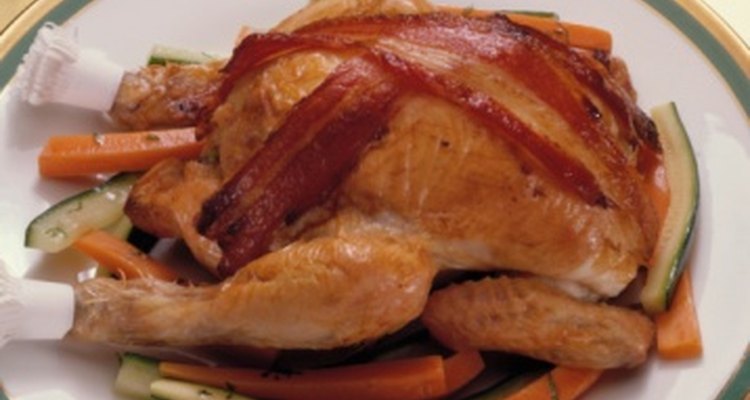
Cornish hens resemble miniature chickens and are a very flavorful cross breed between a Plymouth Rock hen and a Cornish game cock. They weigh between 1 and 2 pounds and can be successfully grilled in a shorter amount of time than it takes to cook a whole chicken. The trick, according to Andrew Schloss, David Joachim and Alison Miksch, authors of "Mastering the Grill: The Owner's Manual for Outdoor Cooking," is to marinate the Cornish hen, butterfly it and grill it over direct heat.
Rinse your Cornish hens with cool water and dry them with a paper towel.
Butterfly each Cornish hen. Lay the hens on a cutting board with their back sides up. Use poultry shears to cut along one side of a hen's backbone. Cut along the other side of the backbone and discard the bones. Turn the hen over and press on the breastbone to flatten the bird.
Whisk olive oil, white wine, garlic and rosemary together in a marinating dish.
Add the butterflied Cornish hens and spoon the mixture over them to coat. Marinate the birds for four to eight hours, turning and basting them occasionally. Use a turkey baster as necessary.
Preheat your outdoor grill to medium heat.
Use a pair of tongs to place each Cornish hen on the grill, breast side up. Brush the meat with the leftover marinade and discard the rest.
Flip the Cornish hens over after 15 minutes.
Cook the hens for an additional 15 minutes, or until an instant-read meat thermometer registers 180 degrees Fahrenheit.
Remove the hens to a serving platter and let them rest for five minutes before serving.
Related Articles
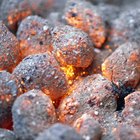
How to Cook Quail on a Grill
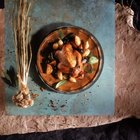
Seasonings for Cornish Hens
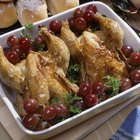
How to Cook a Cornish Game Hen in a ...

How to Roast Cornish Hens With Potatoes ...
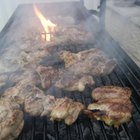
How to Grill Dove Breasts
Easy Cornish Game Hen Meals

How to Tenderize a Large Old Chicken
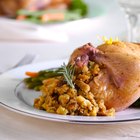
How to Cook Stove Top Stuffing Stuffed ...
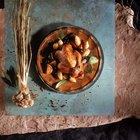
The Best Way to Cook Cornish Hens
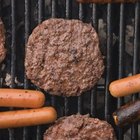
How to Cook a Frozen Beef Patty ...

How to Roast a Split Turkey
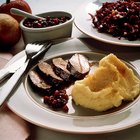
How to Make a Venison Rub
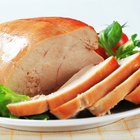
How to Cook a Boneless Turkey in the ...

How Long Do You Cook Whole Deer ...
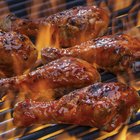
How to Cook Chicken in a Crockpot & ...

Can I Cook Duck in Low Temperatures to ...
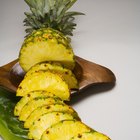
How to Cook El Pollo Loco Chicken in ...

How to Grill Boneless Chicken Strips

How to Cook BBQ Wings on a Gas Grill

How to Marinate BBQ Chicken Thighs & ...
References
- "Grilling for Dummies"; Marie Rama and John Mariani; 2009
- "Mastering the Grill: The Owner's Manual for Outdoor Cooking"; Andrew Schloss, David Joachim and Alison Miksch; 2007
- "Better Homes and Gardens"; Butterflying a Cornish Hen
Tips
- Brush the outdoor grill grate with olive oil to help prevent the Cornish hen from sticking while cooking.
- The marinade recipe can be prepared with any herbs you like, such as sage, onion powder, basil or dill. You can also replace some of the white wine with freshly squeezed lemon or orange juice for a different flavor.
- The Cornish hens can be marinated overnight if desired.
- If you are serving Cornish hens for a dinner party or other gathering, plan on one hen per guest.
Warnings
- If you plan to use your cutting board for another part of the meal, make sure to wash it with hot, soapy water between uses to prevent the spread of bacteria.
- Wash your hands after handling the raw Cornish hens.
Writer Bio
Sara Ipatenco has taught writing, health and nutrition. She started writing in 2007 and has been published in Teaching Tolerance magazine. Ipatenco holds a bachelor's degree and a master's degree in education, both from the University of Denver.
Photo Credits
Jupiterimages/Photos.com/Getty Images